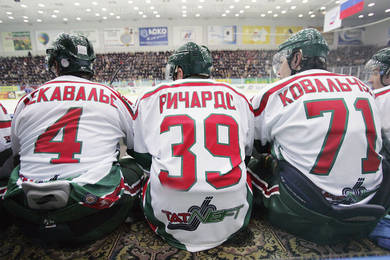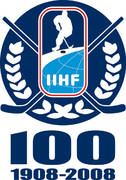

Story #49 NHL-lockout floods European leagues with 388 players2004-05 season
The loss of the 2004-05 NHL season came as a surprise to no one. For at least a couple of years prior to September 15, 2004, it had been clear that NHL Commissioner Gary Bettman and NHL Players’ Association executive director Bob Goodenow were on the road to conflict, and neither party was going to give in an inch. If these signs weren’t clear enough indication, then the World Cup of Hockey left no doubt.  But there were still two big groups of players looking for ice time: established North Americans and veteran Europeans. At first, players going to Europe seemed like a great boon for fans and teams. Who, after all, could object to the Sedin twins returning to MODO for a few games? And Saku Koivu returning to TPS Turku was a dream scenario for fans of the player and team. If Davos wanted to sign Joe Thornton and Rick Nash, who could possibly object to these two amazing players dressing for the start of a new season in Switzerland? About the Top 100 StoriesAs part of the IIHF's 100th anniversary celebrations, www.IIHF.com is featuring the 100 top international hockey stories from the past century (1908-2008). Starting now and continuing through the 2008 IIHF World Championships in Canada, we will bring you approximately three stories a week counting down from Number 100 to Number 11.
The Final Top 10 Countdown will be one of the highlights of the IIHF's Centennial Gala Evening in Quebec City on May 17, the day prior to the Gold Medal Game of the 2008 World Championship.
These are the criteria for inclusion on this list: First, the story has to have had a considerable influence on international hockey. Second, it has to have had either a major immediate impact or a long-lasting significance on the game. Third, although it doesn't necessarily have to be about top players, the story does have to pertain to the highest level of play, notably Olympics, World Championships, and the like. The story can be about a single moment — a goal, a great save, a referee's call — or about an historic event of longer duration — a game, series, tournament, or rule change. |
 Click here for the 100 Top Stories
|
|






